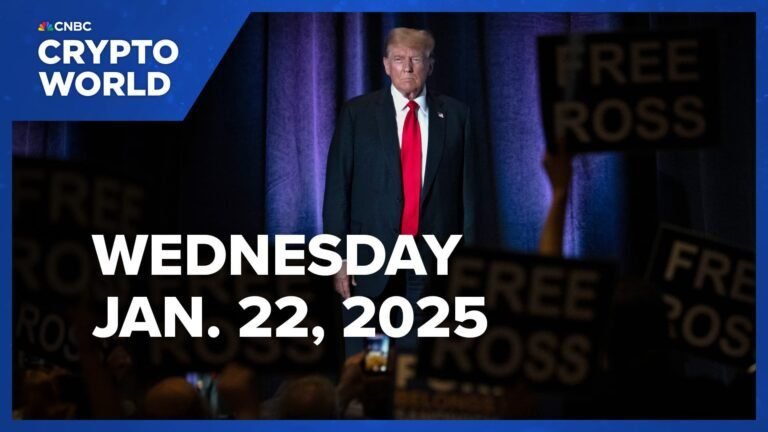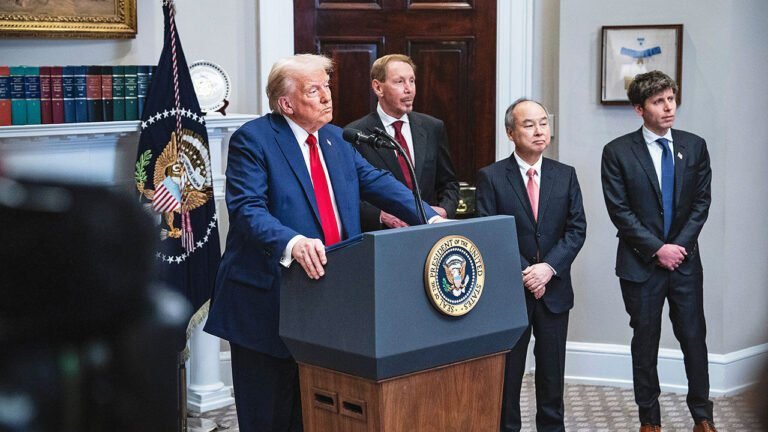The recent actions by the Trump administration to place all federal employees working in diversity, equity, and inclusion (DEI) roles on paid leave have sent ripples through government agencies and beyond. This decision, communicated via a memo from the U.S. Office of Personnel Management, has raised eyebrows and stirred conversations across the nation. As many federal employees prepare for a potential hiatus from their positions, understanding the implications of this directive is crucial.
What’s Happening with DEI Roles in the Federal Government?
On Tuesday, President Trump enacted a sweeping directive to close all DEI-related offices and programs, marking a significant policy shift. This directive, backed by the assertion that such programs represent “radical and wasteful” initiatives, comes after a similar executive order issued back in 2020. Under the recent memo, heads of federal departments were required to inform employees in DEI roles by Wednesday evening that they would be placed on paid administrative leave.
Here’s a quick rundown of what this means:
- Deadline for Notification: Federal agencies had until 5 p.m. ET on Wednesday to communicate this change to their DEI staff.
- Executive Order Context: This recent order follows President Trump’s previous commitment to eliminate what he perceives as ineffectual DEI programs, focusing instead on creating a merit-based system within governmental hiring practices.
- White House Statement: White House Press Secretary Karoline Leavitt emphasized the decision is a "win for Americans of all races, religions, and creeds," reflecting a goal of hiring based solely on skills, rather than diversity factors.
Unpacking the Implications
The implications of this directive are multifaceted and have raised a number of questions. Let’s delve into some frequently asked questions surrounding this topic:
What Employees are Affected?
The memo did not specify the number of employees who would be impacted, leaving uncertainty among many. Understanding the scope of this order is paramount for those who may find themselves in limbo.
How Will Agencies Execute This Directive?
Federal agencies are required to submit a written plan detailing how they will execute the reduction-in-force actions regarding DEI roles by January 31, hinting at a potential reshuffling of priorities within the federal workforce.
Will This Decision Impact Hiring Practices?
A pivotal aspect of the directive involves a potential shift towards a more traditional merit-based hiring approach, rewriting the narrative around how federal positions are filled.
DEI in Context: A Brief History
The dynamic nature of DEI programs within the federal government has seen significant changes over recent years.
| Year | Administration | Key Action |
|---|---|---|
| 2020 | Trump | Signed an executive order prohibiting federal DEI programs. |
| 2021 | Biden | Enacted actions geared towards promoting racial equality in federal agencies. |
As highlighted in this table, the back-and-forth between administrations underscores the contentious nature of DEI efforts within government agencies.
Perspective: The Broader Impact
The shutdown of DEI offices is more than a simple administrative change—it represents a broader cultural shift within the federal workforce. This evolution could ultimately influence perceptions of equity and inclusion in job markets, both in government and the private sector.
Voices from the Field
As a contractor or construction worker in the U.S., you might wonder how these changes could trickle down to the job market. After all, federal policies can set trends that ripple through various professions. Unpacking these shifts will be vital as you navigate your career path in an ever-evolving landscape.
Navigating the Future: What Should You Do?
As the dust settles on these changes, it’s important to consider your next steps. Here are some pointers:
- Stay Informed: Knowledge is power. Keep an eye on relevant news articles and updates regarding federal HR policies.
- Engage with Community: Networking with fellow professionals can provide support and insight during these shifts. Consider sharing your thoughts on social media or forums dedicated to construction and contracting.
- Continue Developing Skills: Regardless of the political climate, focusing on skill enhancement is key. Seek training opportunities or certifications that can boost your employability.
Conclusion: Moving Forward Together
As the Trump administration’s directive takes effect, the future of DEI roles in the federal government hangs in the balance. The implications of such a shift could pave the way for broader discussions on equity, meritocracy, and the role of diversity in the workplace.
In these changing times, it’s essential to remain engaged and informed. Share your thoughts on this topic with your peers and keep the conversation going—your voice matters! Whether you’re navigating the complexities of federal employment or just curious about the shifting dynamics in your field, remember: together, we can adapt and find our way through this evolution.
Is this a win or a loss for equality in the workplace? What are your thoughts? Let’s discuss!
















